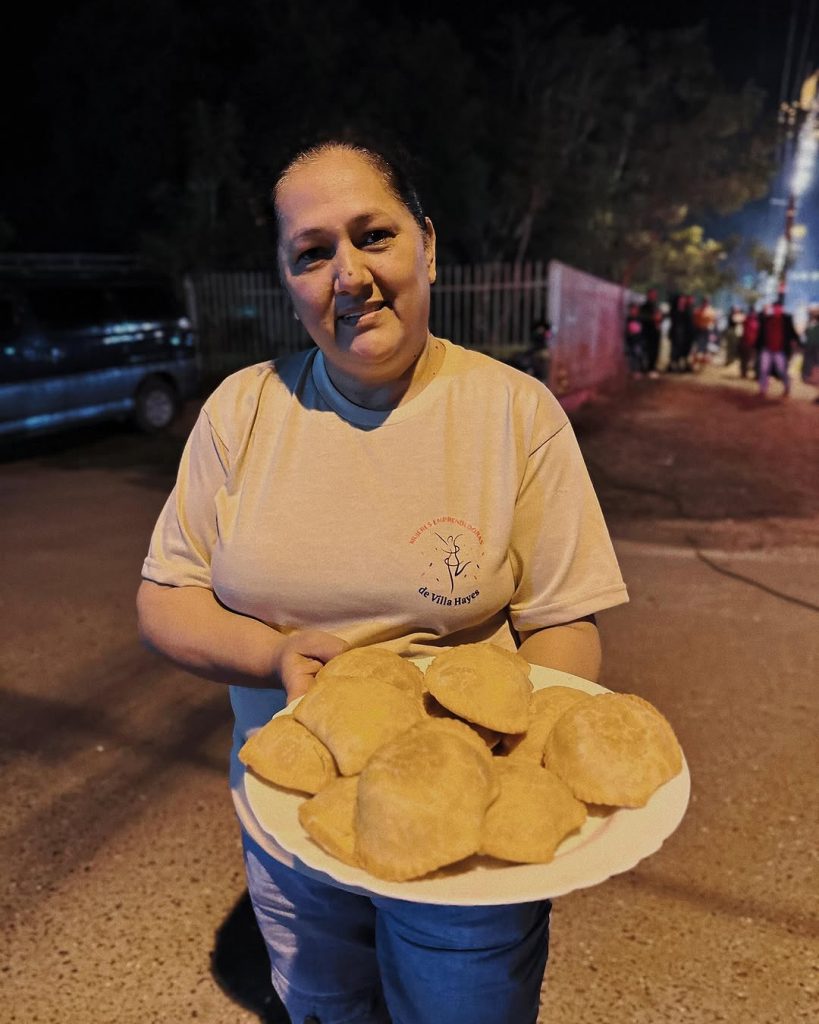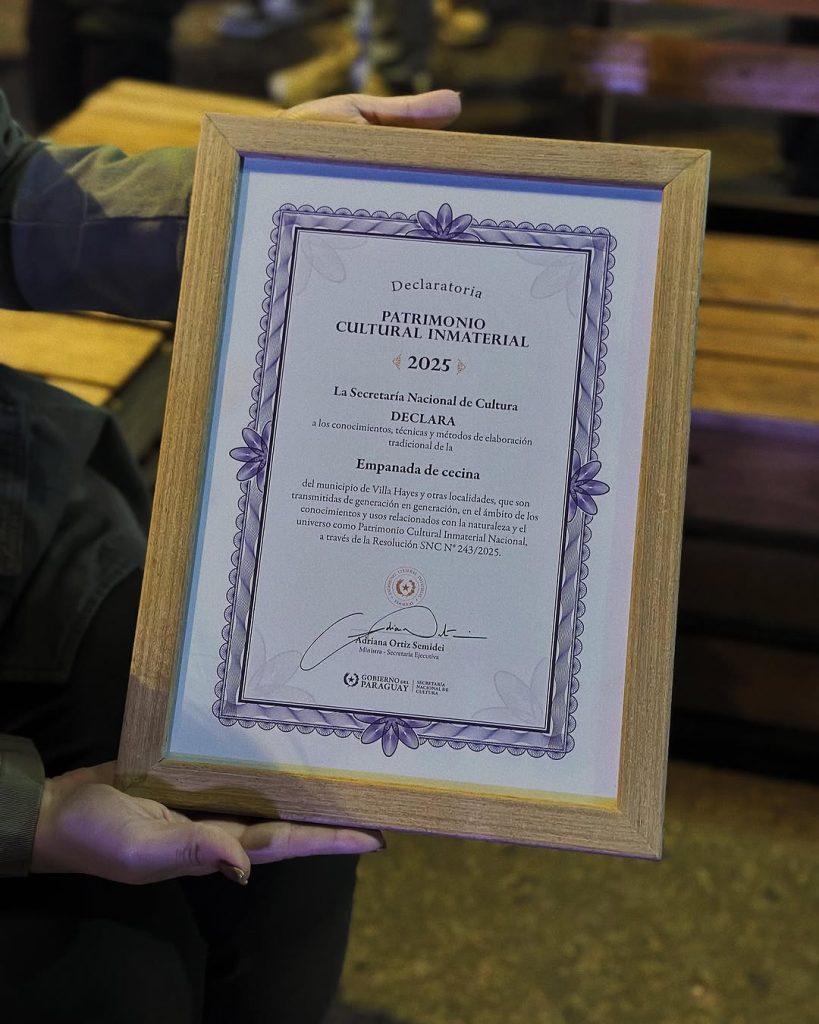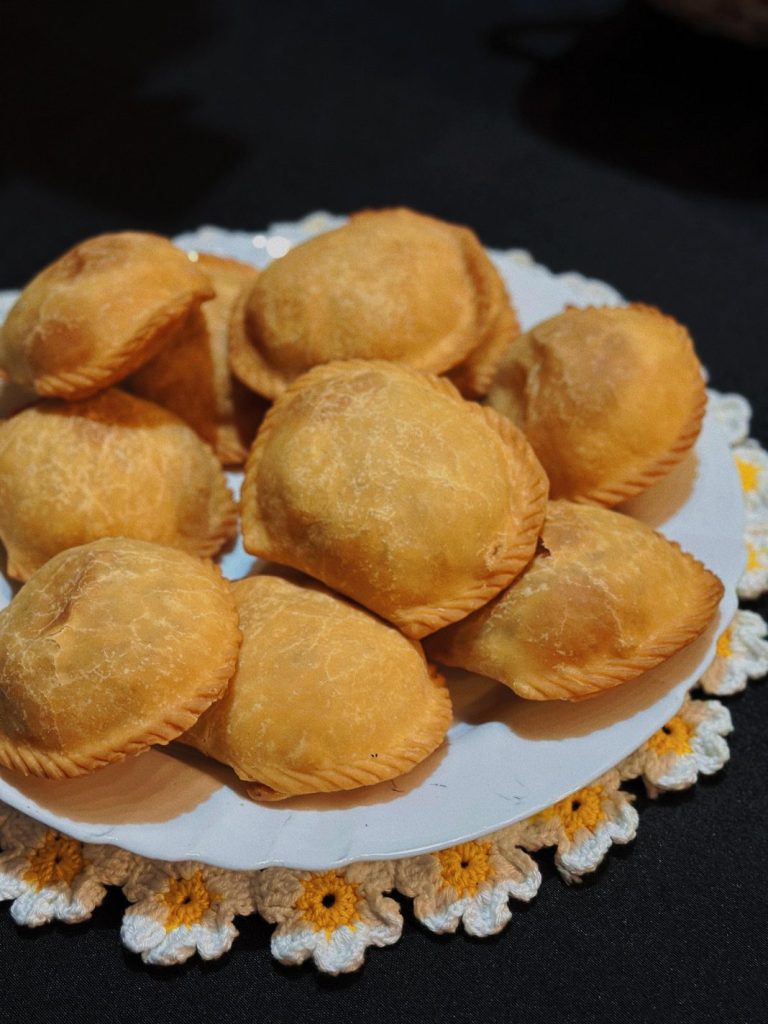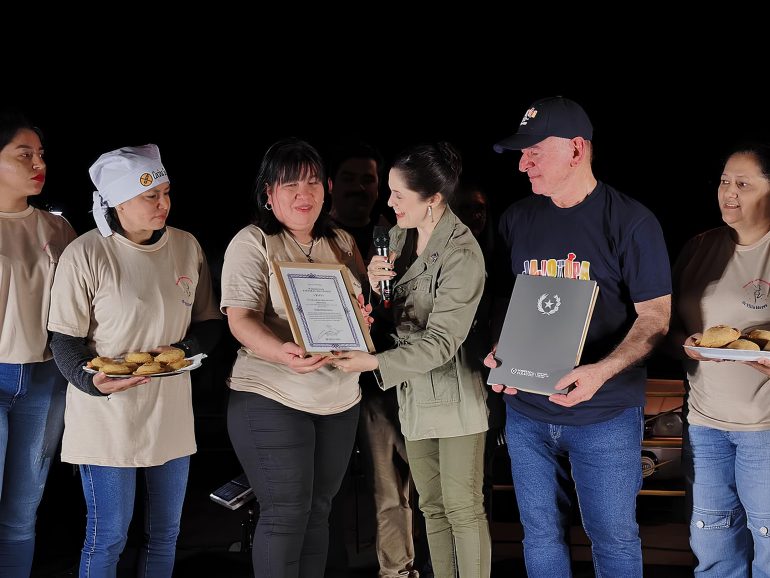The traditional Paraguayan pastry ’empanada de cecina’ from the city of Villa Hayes has been officially declared part of Paraguay’s Intangible Cultural Heritage by the National Secretariat of Culture (SNC), recognising the traditional knowledge, techniques, and methods behind its preparation.
The empanada de cecina stands apart from more common empanada varieties, not just because of its minimal ingredients, but also for its deep historical and cultural significance. Cecina, the star of the show, is sun-dried meat, preserved using a time-honoured technique that reflects both resourcefulness and tradition.
The empanada that tells a story
The empanada de cecina was not born in a modern kitchen, but in the harsh and resilient context of the Chaco. In this region, for decades, life existed without electricity or appliances. Necessity led to preserving meat with salt and sun, creating cecina, and eventually, this treasured empanada.
Originating in Villa Hayes, the empanada de cecina is a symbol of collective memory. Passed down through generations, its preparation preserves the techniques of the Chaco region. This recipe also reflects the social practices that continue to foster a sense of belonging and strengthen community bonds.
With at least a century of history, the empanada de cecina represents the resilience of a people, the wisdom of a community, and the identity of a nation.



Cecina: A taste of heritage
The empanada’s preparation draws from the Chaco region’s preservation methods, where, in earlier times, this approach represented a means of survival. The process involves drying the meat under the sun for two to three days. Then boiling the meat and finally pounding it in a mortar to form the empanada filling.
Unlike other empanadas, the remaining ingredients are simple and humble: garlic, onion, egg, and occasionally a touch of pepper. This simplicity reflects the dish’s origins, highlighting the creativity and the authenticity. More importantly, it honors the practice of making the most of whatever is available at home.
Tradition of pride and purpose
The empanada de cecina is a source of income, livelihood, and pride. It is part of the daily life of many enterprising women of Villa Hayes, and other parts of the Chaco region. Some sell from their homes and others supply commercial establishments and gastronomic fairs.
During the ceremony, held during Jajotopa Fest 2025, the district’s largest gastronomic and cultural celebration. Minister Minister of Culture, Adriana Ortiz, pointed out that the declaration strengthens local identity. She also urged the empanada masters to continue passing down this craft from generation to generation. She emphasised that it is a source of pride for the entire Republic of Paraguay.
To mark the occasion, the producers also introduced a gluten-free version of the empanada de cecina. This variation aims to increase its accessibility without losing the symbolic and artisanal value that defines it.
Read more: Discover how other traditional Paraguayan dishes are recognised nationally, like the beloved so’o josopy, and internationally, such as the iconic vori vori soup.


